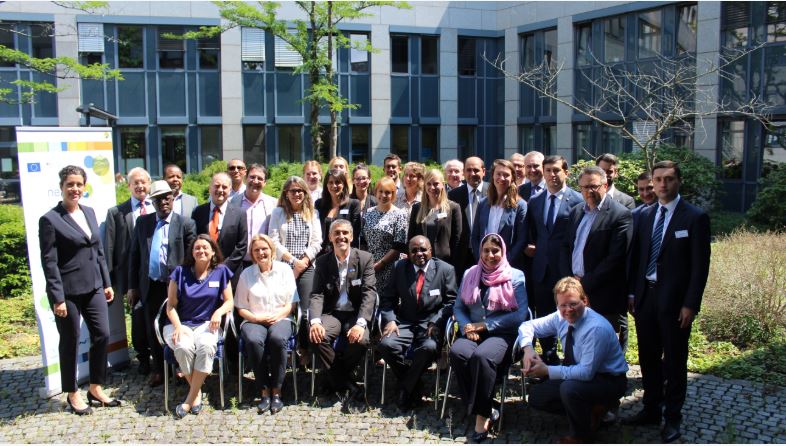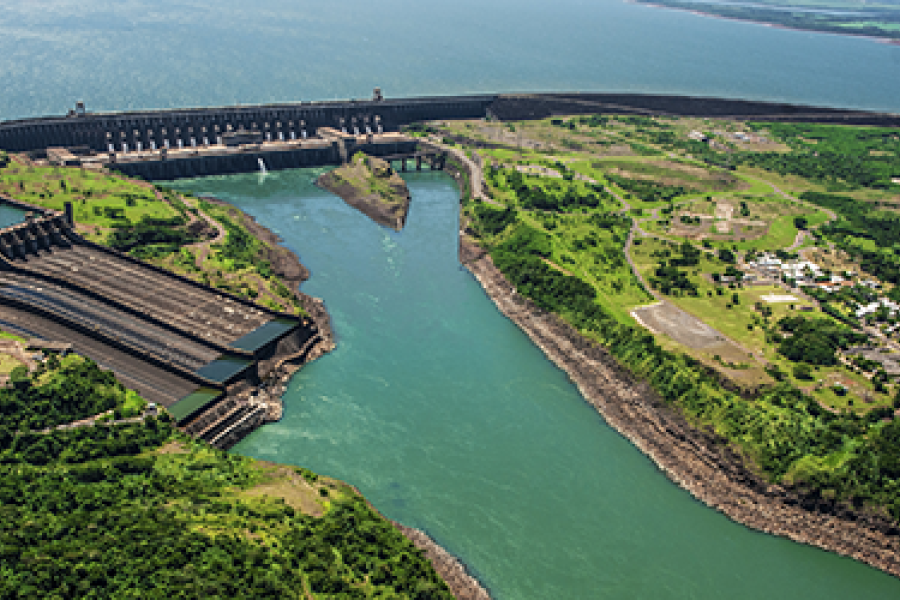3rd Executive Committee Meeting & Partners Meeting: Nexus Dialogue Programme, Phase I
Work area(s)
Teaser
Natural Resources Division of ECLAC collaborated in the “3rd Executive Committee Meeting & Partners Meeting: Nexus Dialogue Programme, Phase I”, on June 5 and 6 2019, in Bonn, Germany
Event information

Date
5 - 06 Jun 2019, 04:00 - 16:00Event type
At the invitation of the Directorate General for Development and Cooperation of the European Commission (DG DEVCO), the Natural Resources Division of ECLAC collaborated in the “3rd Executive Committee Meeting & Partners Meeting: Nexus Dialogue Programme, Phase I”, on June 5 and 6 2019, in Bonn, Germany. Implementing and regional partners involved in program activities, as well as donors, participated in this meeting to discuss progress in the development of the Nexus Regional Dialogue Program worldwide.
The objective of the first day of the meeting was to discuss the strategic planning of Phase II of the Nexus Dialogue program, present the action plans for the next phase and identify the learnt lessons and good practices from Phase I. The objective of the second day was to present the main achievements of Phase I, the strategic partnerships for Phase II and the Water, Energy and Food Nexus in practice.
Ms Marina Gil, from the Water and Energy Unit of the Natural Resources Division of ECLAC, presented the main achievements and results of Phase I in the framework of the collaborative work between ECLAC and GIZ for the implementation of the Nexus in Latin America and the Caribbean. Among the main achievements and outcomes was mentioned the action plan for Phase II that considers 17 projects from more than 10 countries in the region plus 3 regional supporting activities, the training of 95 professionals from 15 countries, a Nexus study about the priorities in the region, Nexus assessments of two countries (Peru and Costa Rica), and two small scale Nexus pilot applications implemented (Solar Pumping Irrigation Systems in Chile and Bolivia). Among the main learnt lessons, she highlighted the need to improve and strengthen the governance of all sectors of the Nexus, with emphasis on planning, coordination, control and information; the need to include economic instruments and government-funded projects, budget allocations, and environmental impact assessments; the importance of including a Nexus approach in water legislation; and the necessity of better coordination between different regulatory agencies and authorities.
